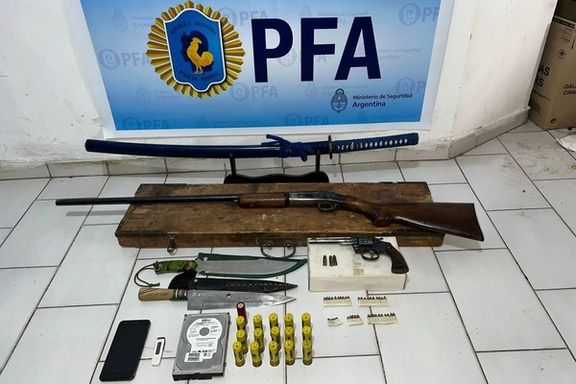The Argentina Federal Police's Anti-Terrorism Unit arrested seven people linked to the suspected terrorist cell following a report of threats against a Jewish journalist by the Delegation of Argentine Israeli Associations (DAIA).
According to authorities, the suspected cell's activities primarily revolved around disseminating hate speech and plotting attacks via encrypted messaging platforms like Telegram and WhatsApp. The content of these messages revealed the cell’s deeply ingrained anti-Christian and anti-Jewish sentiments, along with ideological affiliations to international terrorist organizations such as ISIS and the Taliban, according to Argentine media.
During the investigation, law enforcement conducted eight raids, seizing firearms of various calibers—including shotguns, rifles, and revolvers—as well as knives, daggers, and katanas from the suspects' residences.
This recent incident comes on the heels of January's arrests of three individuals with Syrian and Lebanese citizenship, suspected of planning a terrorist attack.
Argentina, home to Latin America's largest Jewish population, witnessed an attack on a Jewish community center that killed 85 people in 1994, the deadliest incident of its kind in the country's history, along with the 1992 bombing of the Israeli embassy that resulted in 22 deaths.
In April, Argentina's highest criminal court attributed the attacks to Iran, asserting that Hezbollah militants executed them in alignment with Tehran's "political and strategic design." Iran has denied playing a role in either attack.
Since Javier Milei assumed Argentina's presidency in December 2023, there has been an intensified focus on national security, particularly concerning potential threats linked to Iran and its alliances with Bolivia and Venezuela.
In July, Milei announced plans to advance legislation enabling the trial of individuals in absentia of severe crimes, a move designed to facilitate the prosecution of Iranian leaders implicated in the attacks.







